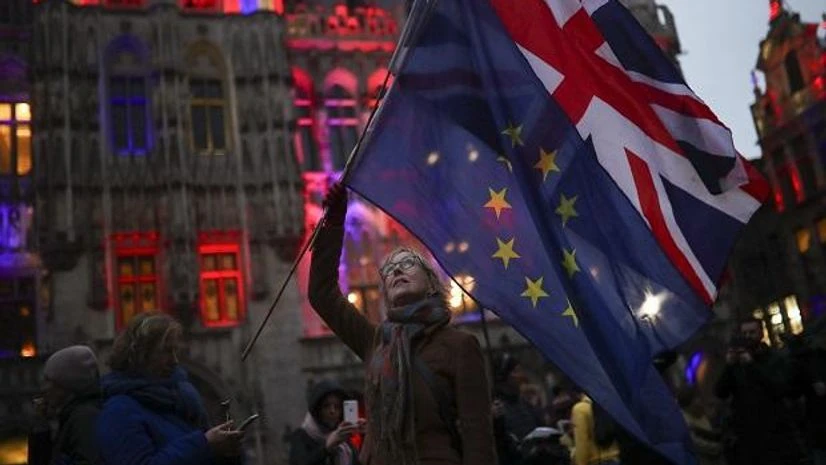By Gabriela Baczynska
BRUSSELS (Reuters) - A senior European diplomat told Reuters on Wednesday that a Brexit trade deal could be imminent, raising hopes that Britain and the European Union could avoid a turbulent economic rupture in just eight days.
There was no confirmation from Britain that a deal was about to be struck; the two sides have given a dizzying array of conflicting signals over recent days, and another EU official said: "It could still go either way."
Since formally leaving the EU on Jan. 31, the United Kingdom has been negotiating a free trade deal with the bloc in an attempt to ease its exit from the single market and customs union at the end of this year.
An accord would ensure that the goods trade that makes up half of annual EU-UK commerce, worth nearly a trillion dollars in all, remains free of tariffs and quotas.
The senior diplomat, who spoke on condition of anonymity, said EU member states would need to approve a provisional application of the deal with effect from Jan. 1 because there was not enough time for the European Parliament to ratify it.
More From This Section
EU member states have started to prepare their procedure to implement any deal from Jan. 1, three diplomatic sources in the bloc told Reuters.
One EU diplomat said the European Council, which represents the member states in Brussels, had started preparations to enable a "provisional application", or fast-track implementation.
The European Commission, the EU executive body, declined to comment.
Britain for its part said that two significant issues - fishing and competition - still remained to be resolved and that there had not been sufficient progress for a deal. The Commission declined to comment.
Sterling jumped more than 1% against the dollar on perceived prospects of a deal while bond yields rose, and prices fell, in Britain, Europe and the United States.
British Prime Minister Boris Johnson and European Commission President Ursula von der Leyen were in close contact and were expected to hold another call on Wednesday.
DEAL TIME?
The United Kingdom casts off into the unknown on Dec. 31 after a stormy 48-year liaison with the Franco-German-led project that sought to bind the ruined nations of post-World War Two Europe into a global power.
The scale of potential Brexit disruption has been laid bare since France closed its borders to Britain for 48 hours citing a new coronavirus variant, stranding thousands of furious European truckers in southern England and disrupting food supplies.
Irish Prime Minister Micheál Martin said the gap on how much fish EU boats could catch in British waters was still wide.
But he told the national broadcaster RTE: "I think, given the progress that has been made, that there should be a deal ... A 'no-deal' would be an appalling shock to the economic system on top of COVID-19."
Ultimately, Johnson, who is grappling with both a deepening COVID-19 outbreak and a border crisis at Dover, Europe's busiest truck port, will have to decide if the narrow deal on offer is worth signing up to.
Walking away might elicit applause from many Brexit supporters at home but would trigger severe trade disruption and end the EU divorce in acrimony.
"There's still the same serious areas of disagreement, whether that's on fisheries or the level playing field," British Housing Secretary Robert Jenrick told Sky News. "But at the moment there isn't sufficient progress."
The "level playing field" is trade jargon for ensuring fair competition. EU leaders have long feared that after Brexit, the United Kingdom could ease regulation to undercut competitors and thus gouge EU market share. Enforcement is a key issue.
Beside competition, the two sides are haggling over just how much EU fishing boats can catch in Britain's waters: essentially how many sole, sand eels and mackerel EU boats can haul in per year, and when and how to renew such agreements.
(Reporting by Guy Faulconbridge, Jihn Chalmers, Kate Holton, Sujata Rao, Elizabeth Piper, Gabriela Baczynska, Michael Shields, Padraic Halpin; editing by Kevin Liffey)
(Only the headline and picture of this report may have been reworked by the Business Standard staff; the rest of the content is auto-generated from a syndicated feed.)

)
